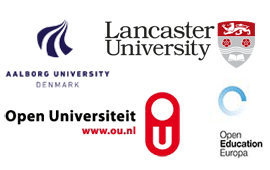

Assessment in clinical simulation: current practices, changing influences, and the potential role of networked learning in shaping the future
Andrew West, Faculty of Health Sciences, University of Manitoba. Gale Parchoma, College of Education, University of Saskatchewan
Clinical simulation is a well-established practice in health professional education programs employing technologies to replace or amplify real experiences with guided experiences representing certain key characteristics or behaviours of selected physical or abstract systems. Educators generally employ collaborative debriefing as an integral part of clinical simulation for reflexive and experiential learning. A movement in higher education towards using simulation for competency-based assessment for high stakes testing such as certification or licensure of health professions has been observed. In face of such a complex evolution in educational practice, social practice theory may be useful to gain an understanding of the ways in which contextual factors affect how assessment practices become embedded into higher education contexts. Therefore, in this paper we take a social practice perspective and contend that these pressures are externally derived requirements. We note that in health professional education these requirements are often observed to be mandated by professional regulatory bodies and discipline-specific accrediting agencies.
Debate over the appropriateness of each of the various purposeful approaches to assessment (assessment ‘of’, ‘for’, and ‘as’ learning) are not novel. However, our examination of how a potential move from assessment ‘for’ and ‘as’ learning towards adoption assessment ‘of’ learning practices in clinical simulation brings to light concerns over this contemporary pedagogical movement. To now, the body of literature that demonstrates the pedagogic advantages of employing clinical simulation in health professional education has been informed by research into learning environments that are highly supportive of reflexive and collaborative debriefing. Through review of the literature on assessment in clinical simulation we identify several important social elements of that learning environment, including trust and ontological security. We suggest these social elements may be at risk in the face of these evolving assessment practices, and that they warrant deeper investigation in this context.
Lastly, we compare themes that emerge through this review of the literature with the essential values of networked learning. With connectivity and co-production of knowledge at the fore, the parallels between these themes and values suggest the utility in adoption of networked learning theory as a pedagogical framework in clinical simulation. Networked learning theory offers the area of assessment practices in clinical simulation, an at once undertheorized yet highly technologically enhanced and connected approach to learning, with a pedagogical framework upon which to build deepened understanding of an important social learning phenomenon.
Keywords
Simulation, assessment, debriefing, ontological security, networked learning
Joint Organising Institutions
| Conference Travel and Accommodation |Doctoral Consortium | Past Conference Proceedings | Contact |